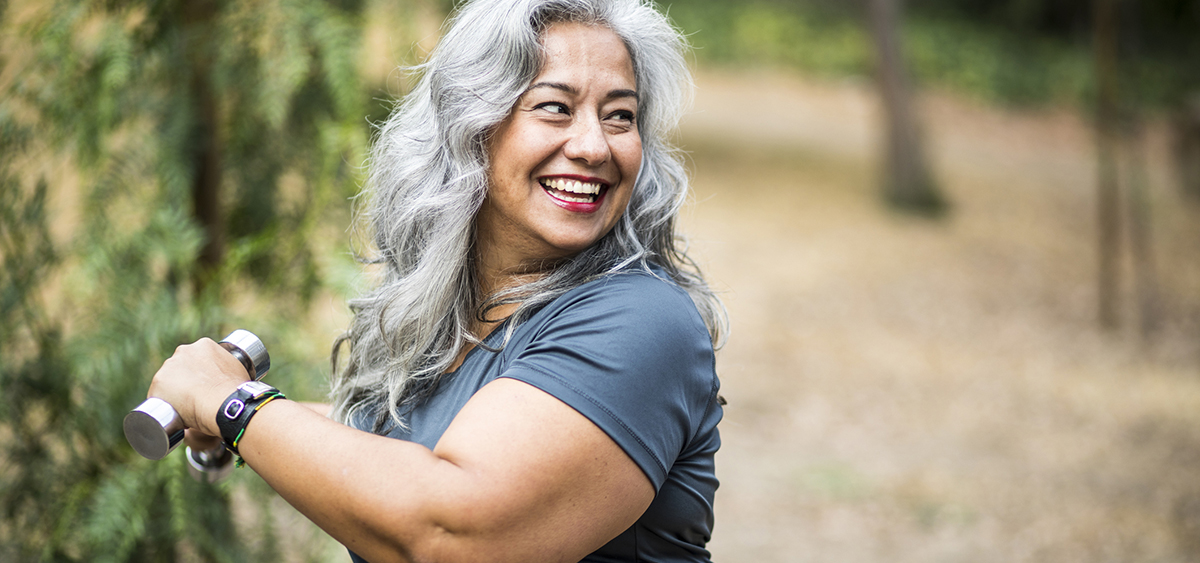Weather Alert: Following the winter storm, all Temple Health hospitals, campuses and clinical locations remain open, though some appointments or services may be adjusted. Patients will be contacted directly if their visit is affected. Please check TempleHealth.org or FoxChase.org for updates and monitor myTempleHealth for changes to scheduled appointments.
Breadcrumb
- Home
- Thrive Cancer Blog
- 8 Ways to Reduce Your Risk for Cancer

8 Ways to Reduce Your Risk for Cancer
-
When it comes to keeping cancer at bay, there’s both good news and bad.
The bad news is that there’s no foolproof way to prevent it. As for the good? Everyone can take steps to significantly lower their risk. “Cancer can be genetic or sporadic,” said Sanjay Reddy, MD, a surgical oncologist at Fox Chase Cancer Center. “But there are certain things that are very important parts of cancer prevention.”
Here’s a look at eight everyday behaviors that experts agree can make a difference.
1. Quit smoking. If you still light up, quitting won’t just lower your risk for lung cancer; it’ll lower your risk of bladder, stomach, kidney, and pancreatic cancers too. In fact, around 30 percent of all cancer deaths in the U.S. are thought to be caused by cigarette smoking. If you need help kicking the habit, consider joining Fox Chase’s Tobacco Treatment Program. It’s never t oo late to quit.
2. Maintain a healthy weight. Aim to keep your body mass index within the healthy range, and as close to the lower end as possible. Keeping your weight in check is the most important thing you can do to lower your cancer risk after not smoking, according to the American Institute for Cancer Research. Excess body fat triggers the release of certain hormones that can cause cancer growth.
3. Eat more plants. Fruits, vegetables, whole grains, and beans are rich in phytochemicals—compounds that help protect against cell damage. Plant foods are also lower in calories, so they can help you manage your weight. Try to fill your plate with two-thirds plant foods, and limit your consumption of processed foods, sugar, and red meat.
4. Move more. Regular exercisers are less likely to get certain cancers compared to sedentary folks, in part because being active lowers the chance for obesity and helps regulate hormones. Aim for 150 minutes of moderate or 75 minutes of vigorous activity per week. Try to keep moving throughout the day if you can. For instance, take short walking breaks throughout the workday or during commercials on TV.
5. Get regular cancer screenings. Some can catch precancerous changes in the cervix or colon that can be treated before they become cancerous. Others can find cancer earlier, when it’s often easier to treat. Start the conversation about cancer screenings with your primary care provider, Reddy said. Together you can discuss your individual risk factors and concerns to decide which screenings are best for you. You can read about screening guidelines for five common cancers here.
6. Be sun smart. The sun’s UV rays can change the DNA of cells, which can lead to cancerous skin growths. Minimize your exposure by wearing sunscreen with an SPF of 30 or higher. And seek shade during the time of day when the sun’s rays are strongest—between 10:00 AM and 2:00 PM, Reddy recommended.
7. Get vaccinated. Some viruses can cause cancer. For instance, the human papillomavirus (HPV) raises the risk for cervical and other genital cancers. And hepatitis B is linked to liver cancer. Both have vaccines that can help prevent them. Talk with your doctor to make sure that you and your loved ones have the necessary immunizations.
8. Limit alcohol consumption. Alcohol is tied to oral, throat, breast, liver, and colorectal cancers. If you choose to drink, it’s best to do so in moderation, Reddy said.
